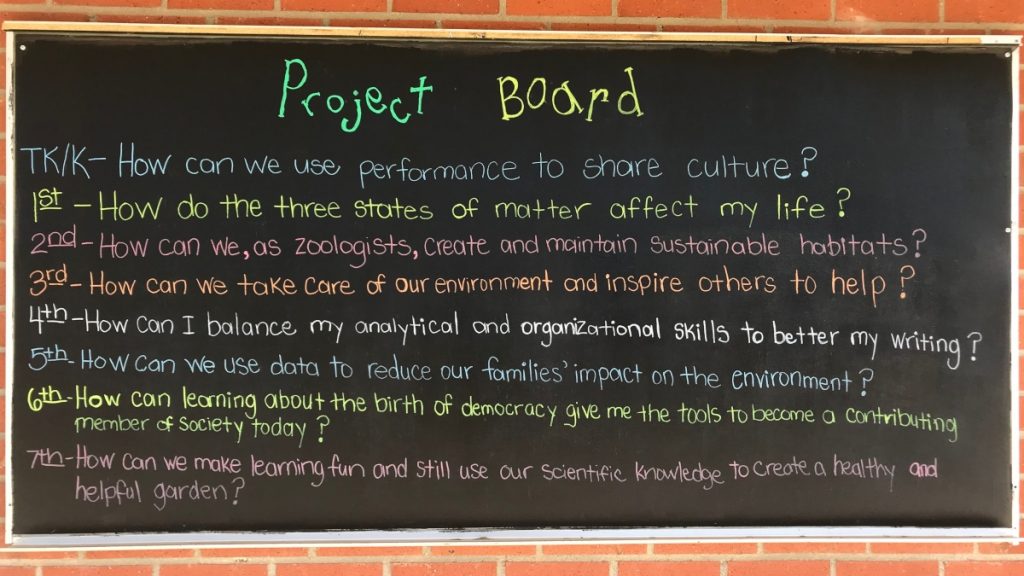As we inspire our learners to be lifelong thinkers, we focus on collaboration, developing executive function, social and emotional growth, and problem-solving techniques. All of these are 21st-century skills that serve to help learners tackle real-world issues.
Listening to different points of view and working with a variety of people, with each contributing to the whole, is a standard of 21st-century learning. Great discoveries are accomplished by creating approaches to tackle real-world problems, brainstorming, and trying a variety of potential solutions until one works.
Social and emotional growth occurs by understanding there are people with many different talents, strengths, and opinions; assuming good intentions when embarking on a task; and listening with intentionality to other points of view. These experiences give our learners practice with that they will encounter in college and the workforce.
Project-based learning incorporates all the essential components to build critical thinkers and lifelong learners. As our learners dive deep into driving questions, it is essential that they come to school each day to participate in valuable conversations and small-group collaboration. If you ever have any questions regarding the learning taking place in the classroom or would like to learn more about the curriculum, please reach out to your child’s facilitator.
Driving Questions:
- TK/K: How can we use performance to share culture?
- 1st grade: How do the three states of matter affect my life?
- 2nd grade: How can we as zoologists create and maintain sustainable habitats?
- 3rd grade: How can we take care of our environment and inspire others to help?
- 4th grade: How can I balance my analytical and organizational skills to better my writing?
- 5th grade: How can we use data to reduce our families’ impact on the environment?
- 6th grade: How can learning about the birth of democracy give me the tools to become a contributing citizen in society today?
- 7th grade (created by the learners): How can we make learning fun and still use our scientific knowledge to create a healthy and helpful garden?
